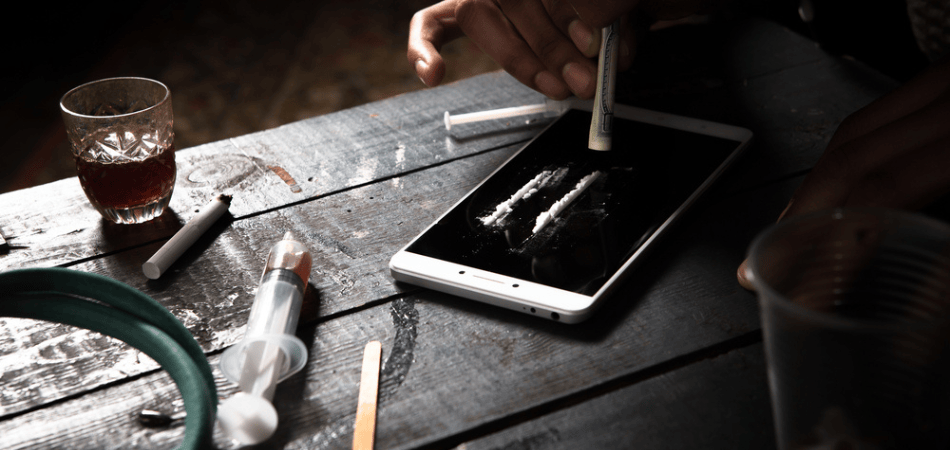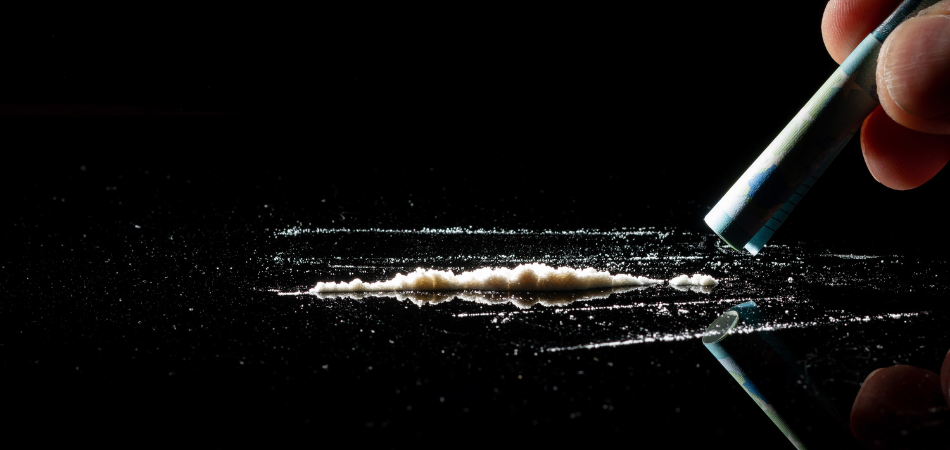
Written by:

Medically Reviewed by:
Last Updated:
January 2nd, 2025
Cocaine detox
Imagine a life free from the clutches of cocaine, filled with vitality, renewed relationships and limitless possibilities. That’s what awaits you on the other side of recovery. Cocaine detox can provide hope and healing for those caught in the snare of cocaine addiction and serve as the springboard towards a healthier, happier you. While cocaine detox can be challenging, with professional guidance and support, you can overcome the difficulties of cocaine withdrawal and begin your journey towards a brighter future.
What is cocaine detox?
Cocaine is a potent and addictive stimulant that alters brain function, affecting your body’s pleasure and reward centres. Over time, with persistent usage, your body develops a physical dependence on cocaine to function normally. This dependence occurs as the body adapts to the drug’s presence, necessitating its usage to prevent cocaine withdrawal symptoms and feel “normal”.
Drug detox for cocaine is a process that breaks this cycle of physical dependence. It involves the systematic and controlled reduction of cocaine in your body, allowing it to adjust to the absence of cocaine and learn to function again without it. The detox process is also an essential starting point for healing and recovery. It cleanses the body of toxic substances, preparing it for the subsequent steps of treatment. This transition enables you to focus on the underlying issues contributing to your cocaine dependency, which increases the chances of lasting recovery.
Abrupt cessation of drug use can lead to severe physical and psychological distress in the form of cocaine withdrawal symptoms, which can be potentially very dangerous. This is why it is always advisable to undergo cocaine detox at a professional detox centre like Oasis Runcorn.
What are the most common cocaine withdrawal symptoms?
When you detox from cocaine, there are a number of cocaine withdrawal symptoms which you may experience. These symptoms can vary greatly among different people, influenced by factors such as the duration of cocaine use, dosage, frequency and individual health. Here is a deeper look at some of the most common cocaine withdrawal symptoms:
- Cravings: At the epicentre of cocaine withdrawal, you will often find an overpowering desire for the drug. These cravings can linger for weeks and even months after completing the cocaine detox process. They are your brain’s response to the absence of the dopamine surge it has grown accustomed to during cocaine use.
- Depression and anxiety: As you sever ties with cocaine, your brain scrambles to restore its chemical equilibrium, a process that can lead to bouts of depression and anxiety. You may experience intense feelings of hopelessness, sadness and unease, paired with a lack of interest in activities that you once found enjoyable.
- Fatigue: The early stages of cocaine withdrawal often usher in profound tiredness. This fatigue is a stark contrast to the energy bursts that cocaine use triggers. It is your body’s reaction to the absence of the stimulant and part of the healing process as your system resets itself.
- Sleep disturbances: Cocaine use disrupts natural sleep patterns, so cocaine withdrawal often brings about sleep-related issues such as insomnia (difficulty falling or staying asleep) or hypersomnia (excessive sleepiness). Some people may also experience vivid and often disturbing dreams.
- Changes in appetite: When you detox from cocaine, you may also experience dramatic changes to your eating patterns. Some people have an increased appetite, while others experience a marked decrease, often due to nausea.
- Agitation and restlessness: Cocaine detox can be an uncomfortable process, both physically and mentally. You may experience periods of restlessness and agitation as your body and mind adjust to functioning without the drug.
- Paranoia: In the early stages of cocaine withdrawal, you may experience episodes of paranoia, where irrational fears and suspicions can make the world seem hostile or convince you that cocaine detox is not effective.
Understanding these cocaine withdrawal symptoms can better prepare you for what to expect during drug detox, making the process less daunting. Remember, professional help is available to assist you through these challenging times, and you do not have to face these symptoms alone.
How long does cocaine withdrawal last?
Cocaine withdrawal is a complex process that varies widely from person to person due to various factors, such as the length of time you have been using cocaine, the presence of any co-occurring mental or physical health conditions and whether you are withdrawing from any other substances concurrently.
However, here is a general cocaine withdrawal timeline of what you might expect:
Day one: The crash phase
The “crash” phase typically begins within a few hours of the last dose of cocaine. This phase is characterised by a sharp drop in mood and energy levels, with people often feeling extremely tired but having trouble sleeping. Other cocaine withdrawal symptoms can include depression, anxiety, irritability and intense cravings for the drug.
Days two to four: Acute cocaine withdrawal
The acute withdrawal phase generally begins within the first couple of days following the last use. During this phase, physical cocaine withdrawal symptoms may subside, but psychological symptoms can intensify. These can include agitation, restlessness, paranoia, vivid and unpleasant dreams and continued intense cravings. Some people may also experience physical symptoms such as chills, muscle aches, loss of appetite and nerve pain.
Days five to fourteen: The extinction phase
During the extinction phase, the acute physical and psychological cocaine withdrawal symptoms typically decrease. However, cravings for cocaine may persist and can be triggered by people, places or things associated with past drug use. This is also the period where “post-acute withdrawal syndrome” (PAWS) can begin…
Weeks two-four: Post-Acute Withdrawal Syndrome
The PAWS phase can last for weeks or even months. This is generally a period of psychological withdrawal symptoms, which can include depression, anxiety, changes in appetite, sleep disturbances and strong cravings for cocaine. These symptoms may come and go without any apparent pattern.
Month two onwards: Prolonged cocaine withdrawal
For some people, particularly those with a long history of heavy cocaine use, cocaine withdrawal symptoms can persist for a prolonged period with cravings, depression and anxiety all continuing. During this time, you are at a high risk of relapse, especially if you do not have appropriate coping mechanisms or support in place.
How to detox from cocaine safely
The safest way to detox from cocaine is at a professional detox centre. At Oasis Runcorn, we offer an inpatient cocaine detox programme, meaning you will reside at our facility while you detox from cocaine. This provides a controlled environment, free from triggers and distractions, so you can focus on healing.
Inpatient detox is complemented by 24/7 professional medical support. Our dedicated team will continually monitor your health, ensuring your safety while also managing cocaine withdrawal symptoms. In some cases, a medical cocaine detox may be necessary, where medications are used to alleviate severe withdrawal symptoms and ease the cocaine detox process.
Upon admission, a full medical assessment will be conducted, allowing you to receive the most effective care, promoting a successful cocaine detox and long-term recovery. However, detox is merely the beginning. To achieve a long standing recovery, our programme includes a complementary cocaine rehab that addresses the psychological aspects of dependency through therapy, counselling and supportive community building.
Myths about cocaine detox
Despite the prevalence of cocaine addiction, misconceptions about cocaine detox often deter people from seeking vital help. Here are ten myths debunked to show the reality behind them:
Myth: Cocaine detox is a cure
Fact: While cocaine detox is a critical first step, it is not a cure for drug addiction. It must be followed by drug rehab and ongoing support for sustainable recovery.
Myth: Cocaine detox is too painful
Fact: With medical support and effective symptom management, discomfort during cocaine detox can be significantly reduced.
Myth: Relapse means cocaine detox failure
Fact: Relapse is not a sign of failure but a common part of the recovery process. It usually indicates that treatment adjustments are needed, or motivation needs to be renewed.
Myth: Cocaine detox is not necessary for recovery
Fact: Cocaine detox is vital to cleanse the body of harmful substances and initiate the healing process.
Myth: You can detox from cocaine in a few days
Fact: While the acute cocaine withdrawal phase may last a week or two, the overall recovery process is longer. Patience and commitment are key to successful recovery.
How to start cocaine detox
If you or a loved one is in need of cocaine detox and rehab, then help is available. At Oasis Runcorn, we have helped many people begin the road to recovery with our comprehensive cocaine recovery programmes. Allow us at Oasis Runcorn to guide you through this journey, step by step, as you rediscover a life free from addiction and full of possibilities.
Frequently asked questions
The duration of a cocaine crash typically lasts anywhere from 1 to 3 days, depending on factors like the amount used, frequency of use, and individual health. For chronic users, the crash can be more prolonged, with mood disturbances and cravings lasting longer.





